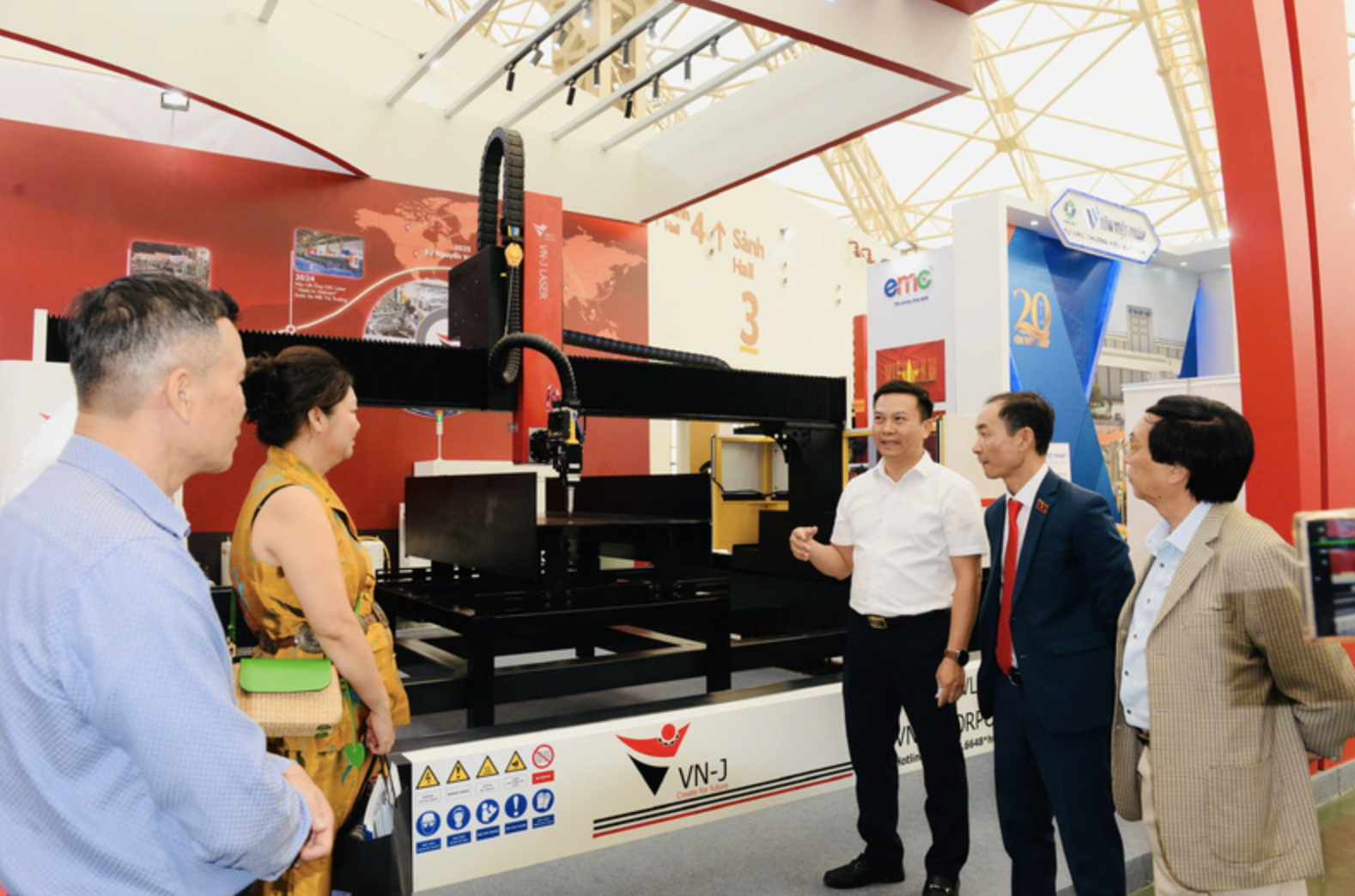
Supporting industries look to a new spring of growth
19:05 | 23/03/2025 18:04 | 20/02/2026Industry
The Politburo issued Resolution 70-NQ/TW on August 20, 2025, on ensuring national energy security through 2030 with a vision to 2045. This is an important document providing strategic direction for the energy sector as the country enters a new stage of growth with both opportunities and challenges. To better understand its implications, Cong Thuong reporter spoke with Mr. Tran Hoai Trang, Deputy Director General of the Electricity and Renewable Energy Authority under the Ministry of Industry and Trade.
Energy must move ahead of development needs
- Resolution 70 is seen as a major strategic document. In your view, what is its biggest breakthrough compared with previous energy policies?
Mr. Tran Hoai Trang: Resolution 70 emphasizes that ensuring energy security plays a decisive role. Energy must move one step ahead to meet the requirements of rapid and sustainable national development in the coming period.
It also affirms that safeguarding national energy security is both a foundation and an essential prerequisite for national development, and an integral component of national security.
The resolution clearly states that energy development must be given the highest priority to sustain continuous growth of over 10% in the years ahead, helping realize the country’s two centennial goals. At the same time, energy development must align with a socialist-oriented market economy and be flexible in fulfilling international commitments on greenhouse gas emission reduction.
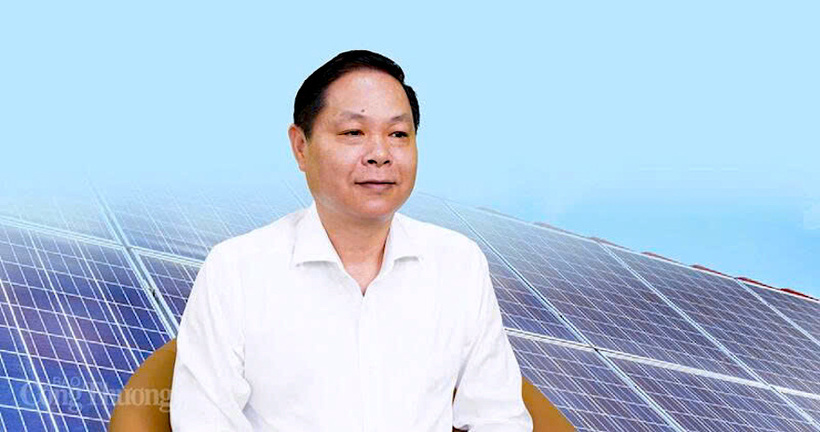
Mr. Tran Hoai Trang, Deputy Director of the Electricity Department (Ministry of Industry and Trade). Photo: Quoc Chuyen
According to Resolution 70, energy is not just an infrastructure sector but a strategic foundation for economic development. It directly impacts the economy, society, environment, and climate change response, while also being an inseparable part of national security.
In particular, the resolution reviews existing shortcomings and sets out immediate, comprehensive measures to ensure energy security through 2030, with a vision to 2045.
Resolution 70 also establishes strong coherence with other Party directives, including Resolution 68-NQ/TW on private sector development, Resolution 66-NQ/TW on legislative reform, and Resolution 57-NQ/TW on breakthroughs in science, technology, innovation, and digital transformation.
Resolution 70 places safeguarding national energy security as the top overarching objective through 2030, while gradually advancing the energy transition to meet development needs and global commitments. For example, it sets a target for primary energy supply of 150-170 million tons of oil equivalent by 2030.
The document further identifies key tasks and solutions that underscore the leadership role of the Party, state management, and the participation of the entire political system and people in ensuring national energy security.
Removing institutional bottlenecks, mobilizing resources
Resolution 70 highlights the need to complete the institutional and policy framework, making it a competitive advantage and a strong driver for energy development. This requires removing bottlenecks in planning, licensing, and financing, while introducing special mechanisms and incentives to attract and implement urgent, large-scale national energy projects.
The resolution also outlines specific tasks for supply and infrastructure development across subsectors; promoting energy efficiency; protecting the environment; encouraging greater private sector participation; advancing science, technology, and innovation; accelerating digital transformation; developing human resources; and expanding international cooperation.
Special policies are also mandated to ensure sufficient capital for major energy projects and large-scale transmission lines deemed critical and urgent.
- Given the rising demand for electricity, how do you assess the balance between supply security and the shift toward green energy under Resolution 70?
Mr. Tran Hoai Trang: As noted, Resolution 70 demonstrates flexibility in implementing international emission-reduction commitments. One key objective through 2030 is to gradually advance the energy transition while ensuring supply security. With concrete tasks and measures, I believe we can achieve both secure electricity supply and a successful green transition as mandated.
Thus, balance is feasible if we synchronously and effectively implement institutional, organizational, policy, and investment solutions. This will ensure stable electricity supply while shifting toward clean energy, reducing emissions, and aligning with international pledges.
Opening the way for clean energy
- What role will renewable energy (wind, solar, biomass, pumped storage hydropower, etc.) play in ensuring national energy security to 2030 and toward 2045?
Mr. Tran Hoai Trang: Resolution 70 prioritizes maximum exploitation and efficient use of renewable and new energy sources, with a target that renewables account for 25-30% of primary energy supply by 2030. This underscores their crucial role in energy security.
Looking to 2045, renewable energy will underpin a sustainable, integrated energy system that uses resources efficiently, protects the environment, reduces greenhouse gas emissions, and adapts to climate change.
For hydropower, the resolution directs maximizing output from existing plants, selectively developing small and medium projects, and accelerating pumped storage hydropower.
For wind and solar, it prioritizes expansion in line with system safety and affordable prices, especially for self-consumption and rooftop solar.
Specific tasks are also laid out for biomass, waste-to-energy, and solid waste power generation.
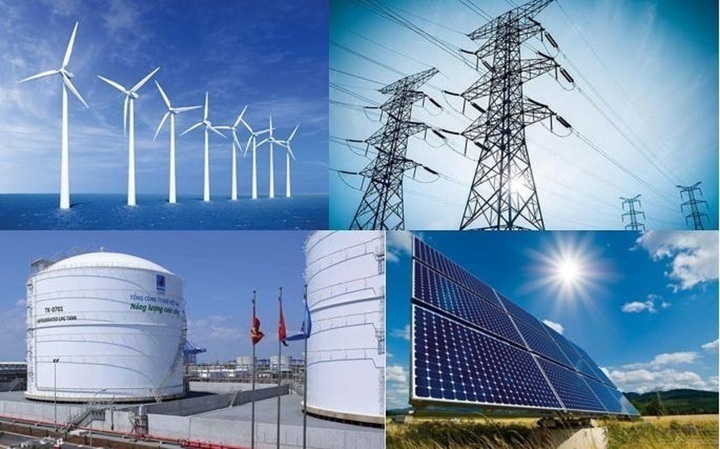
Resolution 70 has become a beacon of light, guiding the entire energy sector in the new period. Illustrative photo
Science, technology and digital transformation as key enablers
- Resolution 70 highlights science, technology, and digital transformation as key solutions. How prepared is Vietnam in this regard?
Mr. Tran Hoai Trang: One of the resolution’s central pillars is breakthroughs in science, technology, innovation, digital transformation, and workforce development in energy.
Accordingly, it requires resolute implementation of Resolution 57 on science and technology in the energy sector, alongside revising laws and standards to foster R&D, technology transfer, and adoption of advanced, eco-friendly technologies.
Vietnam’s energy workforce and achievements in science and technology to date provide a strong foundation. But reaching the resolution’s goals will demand determination and concerted effort from the state, enterprises, researchers, and skilled workers, applying a wide range of solutions.
Under the Party’s leadership, Vietnam is preparing the necessary conditions to enter a new stage of development. With timely, coordinated, and effective policies, I am confident that the energy sector will successfully harness science and technology, drive digital transformation, ensure national energy security, and support sustainable growth.
Thank you very much!
Resolution 70 clearly states that science, technology, innovation and digital transformation should be applied to promote rapid and sustainable development of the energy sector; gradually master modern technology and nuclear energy technology, and move towards self-sufficiency in producing most energy equipment to serve domestic needs and export both technology and equipment.

19:05 | 23/03/2025 18:04 | 20/02/2026Industry

19:05 | 23/03/2025 17:48 | 20/02/2026Trade
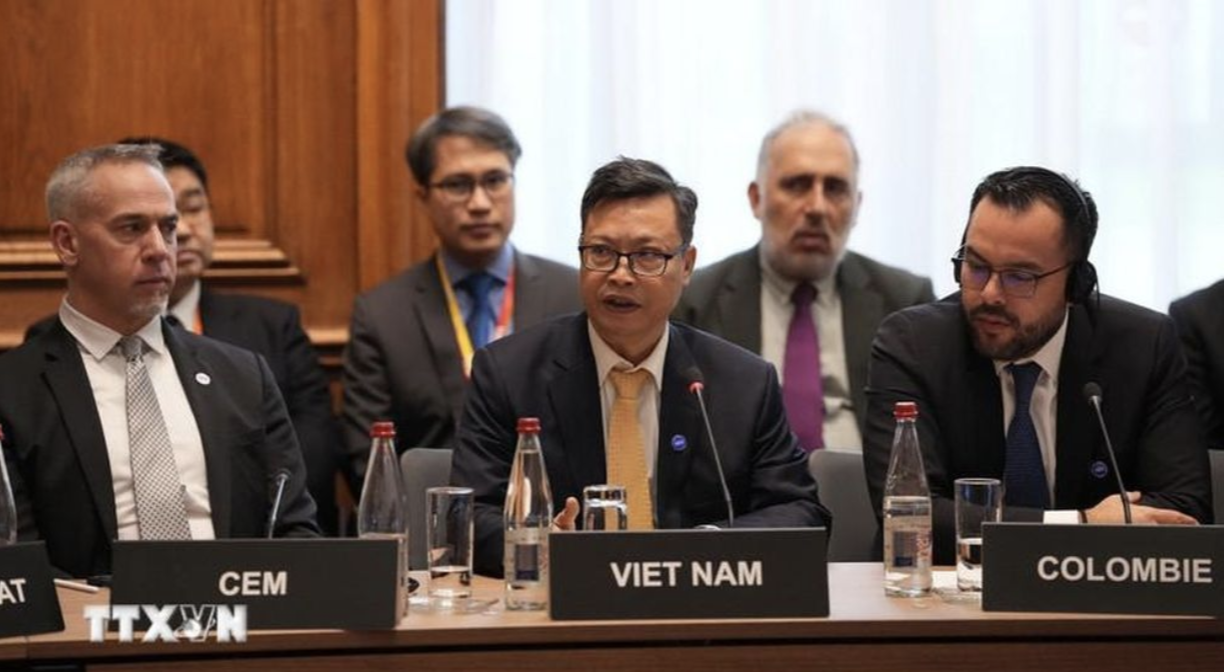
19:05 | 23/03/2025 16:25 | 20/02/2026News and Events
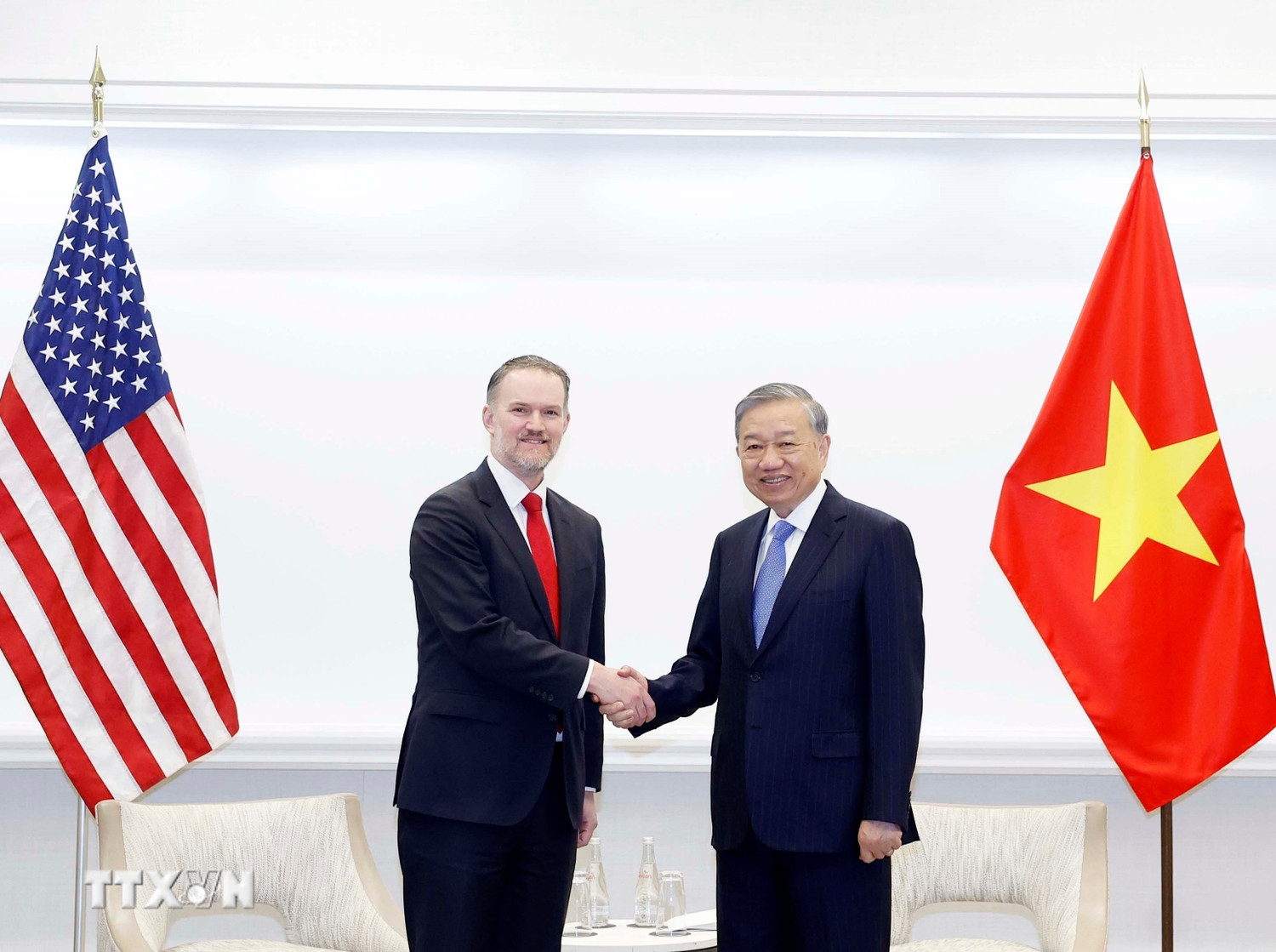
19:05 | 23/03/2025 16:23 | 20/02/2026News and Events
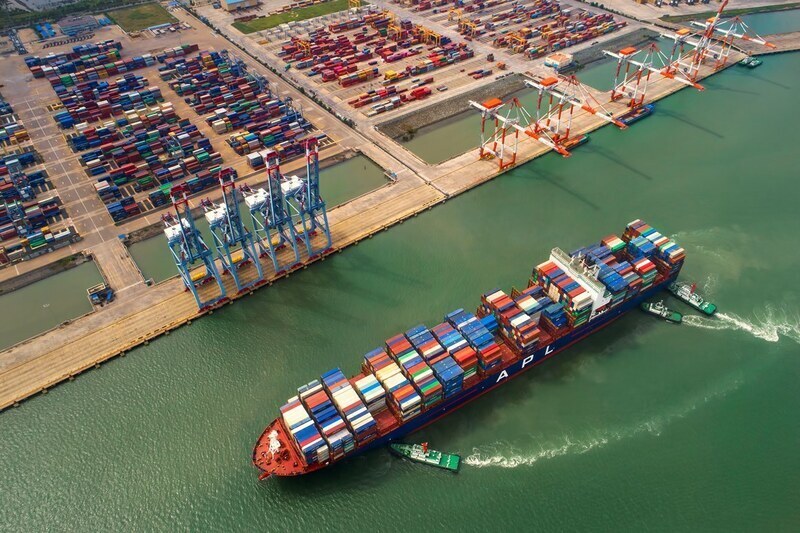
19:05 | 23/03/2025 11:22 | 20/02/2026Industry